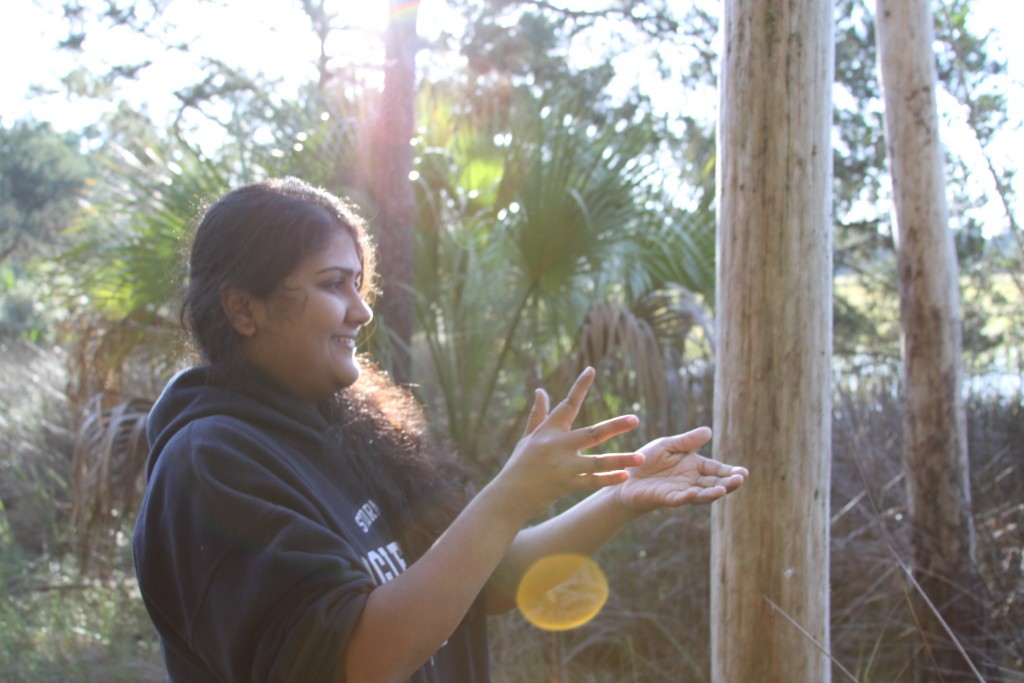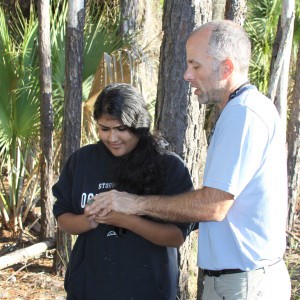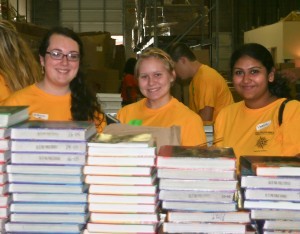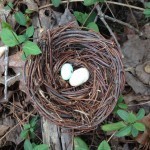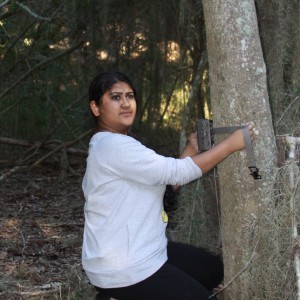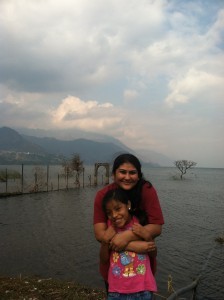Graduating senior Mounica Kota ’16 has made the most of her time at Oglethorpe. Here’s a glimpse at some of her experiences:
Tailored Academics. Mounica’s passion for environmental science and desire to pursue specific topics, such as sustainability and conservation, more deeply than a standard biology major, prompted her to work with her faculty advisor, Dr. Roarke Donnelly, to create an individually planned major (IPM) in conservation biology. While focused on science, her coursework includes a healthy dose of economics, sociology, public health, nonprofit communication, and foreign language.
Civic Leadership. Mounica is one of only seven current recipients of the Civic Engagement Scholarship, a full-ride award that requires students to assume a leadership role within Oglethorpe’s Center for Civic Engagement. Mounica logs close to 100 hours of community service each semester, well beyond the 60 hours required for her scholarship. “If I hadn’t been involved with the CCE and also able to work closely with faculty members, I don’t think I would have been able to distinguish myself as quickly, have the same opportunities for advancement, or land the internships that I did.” Dr. Donnelly credits Mounica as the catalyst for Oglethorpe’s participation in the annual Atlanta Science Festival, founded in 2014 to celebrate science and technology in metro Atlanta.
Real-World Experiences. Through a recommendation from Dr. Donnelly, Mounica secured an internship with the National Park Service at the Chattahoochee River National Recreation Area, where she worked for more than a year. Working alongside the park’s biologist, she reviewed proposals from organizations wishing to build along the riverbanks, conducted site visits to review those plans, and provided the organizations with environmental considerations. She also reviewed “hundreds of pages of data” to prepare reports about river water quality changes for the National Park Service and Environmental Protection Agency. In fall 2015, Mounica interned at Zoo Atlanta, where she adapted a college-level biology lesson about amphibian conservation issues for a high school-aged audience. The lesson will be used to lead related discussions for school tour groups.
Research. Mounica is no stranger to research, with a number of projects already on her resume. For a group project titled “The Edge Effect,” Mounica and her classmates set up wildlife cameras to record and observe activity around artificial bird nests (complete with wax eggs) that were strategically wired into trees in the forest surrounding the Oglethorpe campus. “I checked the eggs for bite marks to see if the nests near the core or the edge of the forest attracted more predators.” This experience came in handy a few semesters later, while on a trip to Sapelo Island with her Conservation Biology class. Knowing Mounica had worked with wildlife cameras before, Dr. Donnelly tasked her with setting them up in the woods surrounding their camp, in hopes of catching a glimpse of nocturnal critters.
Global Education. Mounica has traveled to Guatemala three times for Oglethorpe’s Alternative Spring Break, and in 2016 led the trip and accompanying volunteer efforts. While in Guatemala, Mounica was able to tie in her academic interest in sustainability, and observe that the definition of sustainability can sometimes vary with location, while sitting in on a lesson about how to most effectively skin a rabbit. “While it was hard for me to watch… I felt like it was important for me to see that and understand how many different nuances there are to this concept of sustainability.” Mounica says she would love to eventually like to take her knowledge and passion for conservation and put it to work in Central or South America.
